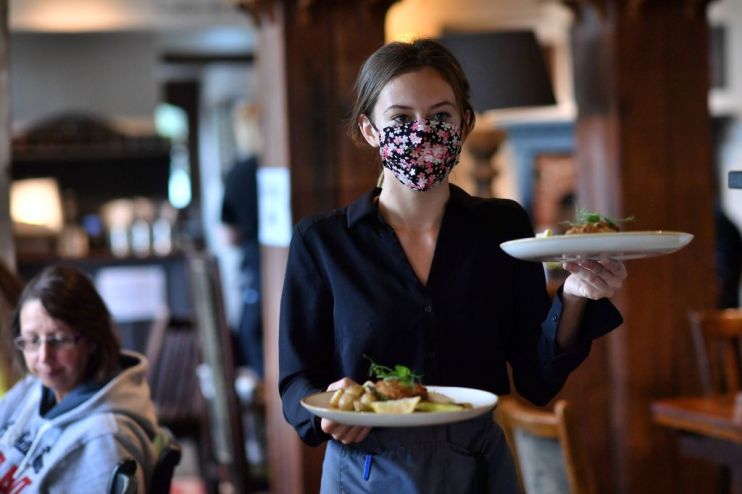End the war on pubs — hospitality isn’t to blame for the Covid crisis

2020 should have been a year of cheering on our teams in the European football finals and Olympics from pubs and bars across the land, bolstered by meals out in beer gardens throughout a typically blistering British summer.
Instead, thanks to Covid-19, this year will be remembered for social distancing, job losses, and uncertainty.
After months of restrictions and sacrifice, the long-suffering British public now have to endure 10pm curfews, a strict rule of six, and the tangible threat that our favourite restaurants and bars might just shut down for good.
Of course, it’s easy to argue that Covid-19 has posed bigger problems to society than closing down our hospitality industry. Over 43,000 deaths and counting is a devastating price to pay for a country with a population of less than 70 million, and the NHS infection prevention advice should never be scoffed at — especially since the data shows the infection rate is rising once again.
But if you look further into that data, you will find that protecting the most vulnerable members of our society does not have to come at the cost — or, indeed, sacrifice — of our world-leading hospitality industry.
Clearly, the government’s 10pm curfew and new tiered warning system were established without the hospitality sector’s wellbeing in mind. The former has destroyed our window for socialising, making an evening trip to the pub feel pointless. The latter, meanwhile, bans friends and family from meeting up indoors in many parts of the country, removing the incentive to eat or drink out, while forcing some establishments in Tier 3 areas to close altogether.
We can in part blame this assault on the sector on the media coverage which has amped up hospitality’s role in the rising rate of infection and polarised opinion, demonising individuals who still frequent pubs and restaurants in higher risk areas.
However, these increasing restrictions and the ongoing condemnation contradict new figures from Public Health England, which reveal that just three per cent of recent traceable infections outside of the home are occurring in food outlets and restaurants. By comparison, 24 per cent are occurring in the workplace, 19 per cent in care homes, and a whopping 35 per cent in schools and universities. In this context, the tightening restrictions are absurd.
Infections may be rising again, but closing the hospitality sector or imposing further rules on struggling restaurants and pubs is not the answer — especially not when other solutions are out there.
Technology might not always be the silver bullet our politicians hope for, but in this instance, it can make a real difference. Our recent research found that 81 per cent of consumers cited handling things that have been touched by other people as one of their core fears about visiting a restaurant at the moment. Using order-pay apps to limit the need for paper menus, to observe restaurant traffic, and to minimise face-to-face contact at the table can help reintroduce the hospitality sector as a safe and Covid-secure pillar of British society.
Sprinkling in more contactless technology, more apps, and more smart restaurant features is what is needed to halt the comparatively low rate of infection currently occurring in pubs, bars and restaurants. There is no need to limit when and how they can serve customers, with curfews and rules on household mixing, if the venues have the tools they need to keep customers safe.
In the current fevered political environment, there is a tendency to try to eliminate all risk, however small, at whatever cost. But we should remember that, pre-Covid, the UK hospitality industry was the third largest employer in the UK. The sector employed over three million workers, equivalent to almost 10 per cent of the entire British workforce. Today, one in five hospitality businesses have yet to reopen, and the jobs of nearly one million people who remain on furlough are at significant risk.
If the devastating assault on hospitality continues, we may not have a sector to return to when the crisis is over. Restaurants and bars can do their bit to make their venues Covid-secure. Now it’s up to the government to recognise the minimal risk they pose to public health, and end the war on pubs.
Main image credit: Getty